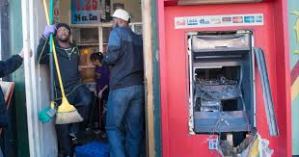Swimming Toward Segregation?
I encountered something unusual at my neighborhood pool on Memorial Day: It was segregated.
That might not be unusual in America, where the norm in many places would be all-black or all-white pools, not by rule anymore, but by demographics nonetheless.
But where I live is different – at least it’s supposed to be, and has been. I live in “the Next America,” the name visionary developer James Rouse gave to his socially engineered and meticulously planned community between Baltimore and Washington called Columbia.
Born out of the idealism and civil rights movement of the 1960s, Columbia was designed as a place where the typical practice of home builders and sellers intentionally blocking African-Americans from buying in certain developments would not be tolerated. In its early days, interracial couples purposefully moved to Columbia, recognizing its acceptance of a union that was still taboo most everywhere else.
It was consciously planned and developed as a new type of suburban city that would foster racial harmony, social integration and cultural and economic diversity. Housing types were mixed in the same community, so lawyers and laborers would live side by side.
But if my Memorial Day experience is any indication, the best-laid plans are showing cracks in their foundation.
I had just completed a class in my graduate program called “Diversity Issues in Counseling,” so I have become more attuned to such issues. At 5:30 p.m. on a gorgeous, sunny holiday, it struck me after I swam my laps and relaxed on my chair — I was the only white at the pool, other than the lifeguards. I made a quick count: about 35 African-Americans and one Asian family.
The area within a mile of the pool is still quite diverse – there are certainly many white residents. Could this have been an aberration, a snapshot “census count” at the pool that would rarely be replicated? Certainly. Could it be that whites are less likely to go swimming than blacks on the whole? Probably not.
Or could this be a small, inconclusive and unscientific, yet observable sign that self-segregation is occurring, in a place that was established as the national antithesis to discrimination and segregation? With 23 pools in Columbia, could white families who live closest to my neighborhood pool be consciously choosing to go to another one? Maybe.
I cannot draw a reliable conclusion from this miniscule sample, only make an observation and pose the question. However, in this same community, I have observed the trend of certain schools gaining higher proportions of minority students, as white families move to other districts.
the question. However, in this same community, I have observed the trend of certain schools gaining higher proportions of minority students, as white families move to other districts.
We know race relations are a sensitive topic in America, and that open communications is an essential element to improve understanding, tolerance and connections. I don’t mean to stir the pot; only to shine a light.

